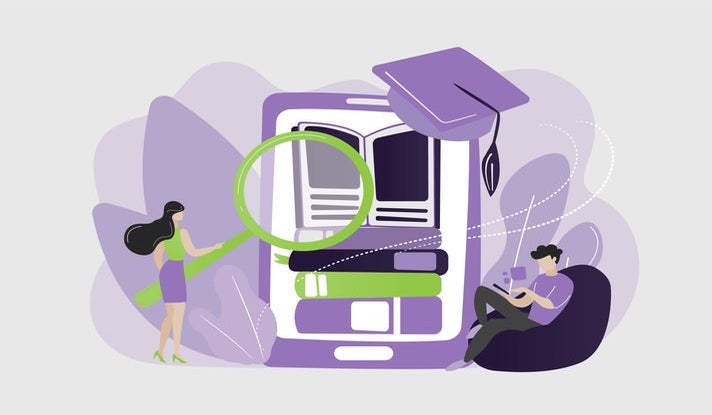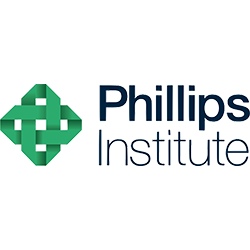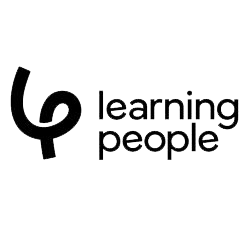What Qualification Should You Take On? (New Guide)

Certificates, Diplomas and Bachelor degrees can be excellent ways to further your education and development – but how can you decide which qualification will best suit you? And what’s the difference between them all?
Certificate qualifications
Certificates are available in 4 levels – I, II, III and IV. Certificate I is the most basic and Certificate IV is the most advanced. The higher level the Certificate, the more in-depth the content and the longer the duration. There’s also a huge range of Government Funded Courses at Certificate and Diploma level.
Certificate I and Certificate II courses
Some courses will start with a Certificate I short course or a Certificate II and are considered to be entry-level courses; they usually don’t require pre-requisites (or prior knowledge or education).
Certificate I & II courses are ideal places to start if you’re new to studying (or haven’t taken on a course in a long time) or if you need a very basic introduction to a particular field. It’s a great place to begin to get a taste of what an industry has to offer and are very popular among people wishing to upskill to improve their employment opportunities.
A Certificate III is also a great starting point if you want to start a new career or develop skills in a specific area. To gain entry into a Certificate III course, you will usually need to have completed one of these:
Certificate III courses
- A Year 10 School Certificate (or equivalent)
- A Certificate II
- A certain level of work/vocational experience
These requirements will vary depending on the type of course/industry involved. Recognition of Prior Learning (RPL) is a popular method of gaining entry into a Certificate II if a course has been done before, with the possibility of credit being gained towards the course based on your previous qualifications. In some areas, such as Fitness, a Certificate III is considered to be the entry-level certificate and so no Certificate II exists or is required.
Diploma qualifications
If you’re asking yourself, ‘What’s the difference between a Diploma and a Bachelor Degree?’, you’re not alone. While a Bachelor Degree is a higher level qualification, a Diploma is very valuable to anyone wanting to get a better understanding of the industry, the skills needed in a career and the practices and responsibilities that are needed to be successful in whichever industry you’re looking to pursue a career in.
What’s the difference between a diploma and a degree?
A Diploma or Advanced Diploma is essentially one step up from Certificate IV and involves more in-depth studies and assessments. In some cases, you may need to complete a Certificate IV before you can take on a Diploma. In other cases, you may be able to gain direct entry into a Diploma course.
Diplomas will usually require you to apply your technical and theoretical knowledge in a range of contexts to equip you for work in the ‘real world.’ They usually take around 1-3 years to complete and can be perfect if you want a more focused and involved level of study. Many Diploma courses also have a work placement component, ensuring you have the ability to gain crucial experiences under industry professionals.
A Bachelor’s degree is one of the most popular degrees you can undertake and is most commonly offered through universities. They usually take 3-4 years of full-time study to complete.
Entry into a Bachelor’s degree can be competitive, depending on the field of study, and often requires a high school certificate or extensive work experience. When studying a Bachelor’s Degree, you will usually specialise in one area and work on increasing your education, knowledge and experience in that field.
Bachelor’s degrees are globally recognised and can be mandatory for many jobs in the workforce. Beyond the Bachelor level of study, there are also many further options open to you, including Honours Degrees, Graduate Certificates/Diplomas, Masters of Arts and PhDs/Doctorates.
So, which qualification is right for you?
Lots of factors should be considered in your decision. These key points may help:
Hours of study
It’s important to be realistic about how many hours of study you can take on each week. Can you commit to something like 15-20 hours of study or do you only have room for 2-4 hours?
If you’re short on time, keep in mind that it may be more beneficial to choose a course/qualification that doesn’t demand too many hours per week. Generally speaking, something like a Certificate can also be a little less pressure than a Bachelor’s degree.
Duration of study
Think about how long you want to take to complete your studies. Are you interested in a short 1-month course? Do you only want to study for a year? Or are you willing to commit to 3-6 years of study?
You’ll need to weigh up these questions in relation to your career goals and your desired job/s in future. In most cases, the more hours you put in per week, the faster you will finish the course (for example, a Bachelor of Arts usually takes 3 years of full-time study, but if you only want to study part-time, you’d be looking at a duration of 6 years).
Study method
While most courses in different qualifications are available online, it’s important you determine which is the best for you, especially in terms of your commitments; both work or personal.
Most Diploma and Bachelor Degrees can be lengthy in duration, with most being undertaken on campus. It’s essential you work out what’s the best for you, online or in class as well as assess the blended course options.
Passion!
Just how passionate are you about your chosen area of study? If you’re unsure if a certain field is right for you, it may be more beneficial to start with a short course or a Certificate qualification.
This is a good way to ‘test the waters’ and determine if you enjoy the subject and want to continue with further studies.
Future employment
Consider what job you want to take on in future and what basic qualifications you will need.For instance, if you want to become a Day Care Worker, you will need a Certificate III at a minimum. If you want to get into Human Resources, consider whether a Diploma might increase your chances of employment over a Certificate qualification.
Unsure what sort of career you’d like to go in to? Try out our Career Quiz and discover what you were made for! Whatever your chosen path of study, just remember that you only get out of it what you put in!
Start your search by qualification, study type or subject today!
Browse Results
Certificate II in Animal Care E1399
If you love animals and are passionate about promoting their welfare, then a job in animal care could be perfect for you. This course will provide an excellent foundation for your career in animal care. Throughout the course you will gain first-hand ex...
Certificate III in Non-Emergency Patient Transport (VIC Only) HLT31120
Our Promise We are confident in the delivery of our training. On successful completion of the course, graduates will be guaranteed a telephone interview for vacant Patient Transport Officer positions in the Non-Emergency Patient Transport division. So...
Certificate IV in Ageing Support CHC43015
Do you already work in aged care and now you’re ready to up-skill? Would you like to have your existing competency recognised? Perhaps you’d like to learn something new, update your team-leading skills and contribute to improved accreditation outcomes...
Certificate IV in Finance and Mortgage Broking
Find a rewarding career helping individuals and businesses in securing loans and managing their finances. Your expertise can make a significant difference in their lives. Embarking on a career in finance and mortgage broking offers the opportunity for...
Certificate IV Celebrancy CHC41015
Are you looking for a rewarding career that will give you both financial and emotional fulfilment? When you study the Certificate lV in Celebrancy course with Rose Training you will gain the skills needed to become a professional marriage celebrant, wh...
Front-End Web Development: Transform
Front-End Web Development: Transform – 12 months of access, can be completed in 3 months (any-time enrolment, part-time, online) Begin your front-end web development career with hands-on coding experience, expert mentorship, and real-world projects. In...
Digital Marketing: Transform
Digital Marketing: Transform – 12 months of access, can be completed in 3 months (any-time enrolment, part-time, online) Embark on your digital marketing career with hands-on experience, expert mentorship, and practical campaign projects. In just 3 mon...
Data Analytics: Transform
Data Analytics: Transform – 12 months of access, can be completed in 3 months (any-time enrolment, part-time, online) Kickstart your data analytics career with hands-on projects, expert mentorship, and real-world business data. In just 3 months, start...
Cyber Security Analytics: Transform
Cyber Security Analytics: Transform – 12 months of access, can be completed in 3 months (any-time enrolment, part-time, online) Launch your cyber security career with hands-on skills, expert mentorship, and exposure to real-world threat simulations. In...
Systems Security Certified Practitioner (SSCP)
Why choose the Systems Security Certified Practitioner (SSCP)? The SSCP certification is recognised internationally as a benchmark for IT security expertise and is designed to validate the knowledge and skills necessary to implement, monitor and admini...
Project Management Professional – PMP
Why choose the Project Management Professional – PMP? The Project Management Professional Course is an in-depth course that enables project professionals to significantly improve their understanding of the intricacies and challenges of Project Manageme...
PRINCE2® Practitioner
Why choose the PRINCE2® Practitioner? If you’re looking to build on your foundational understanding of PRINCE2® Project Management methodology then this course is for you. PRINCE2® (Projects IN Controlled Environments) is a globally recognised framewor...
PRINCE2® Pathway
Why choose the PRINCE2® Pathway? PRINCE2® is a globally recognised project management methodology, and its adaptability lets you manage projects of all sizes, using industry best practice. Passing the PRINCE2® Foundation certification demonstrates your...
PRINCE2® Foundation
Why choose the PRINCE2® Foundation? PRINCE2® is the global standard for project management, and this certificate gets you well on the way to a rewarding and lucrative role as a project manager. The course will give you a clear understanding of the PRIN...
PRINCE2® Agile Practitioner
Why choose the PRINCE2® Agile Practitioner? PRINCE2® is a globally recognised project management methodology, and its adaptability lets you manage projects of all sizes, using industry best practice. The PRINCE2® Agile Practitioner course is an extensi...
PMP and Change Pathway
Why choose the PMP Pathway? Providing a senior level training in Project Management, plus the foundations of Scrum and Agile. Our PMP Pathway elevates your expertise in Project Management and widen your skill sets too. By completing this pathway, you’l...
PMP Pathway
Why choose the PMP Pathway? Providing a senior level training in Project Management, plus the foundations of Scrum and Agile. Our PMP Pathway elevates your expertise in Project Management and widen your skill sets too. By completing this pathway, you’l...
PMI Agile Project Management
Why choose the PMI Agile Project Management? The PMI Agile Certified Practitioner (ACP) course is a professional certification which works to enhance your ability to bring agility and self-sufficiency in project management. Agile projects involve self-...
PMI Agile Certified Practitioner (ACP)
Why choose the PMI ACP? The PMI Agile Certified Practitioner (ACP) course is a professional certification which works to enhance your ability to bring agility and self-sufficiency in project management. Agile projects involve self-empowered teams that...
Networking Career Starter Pathway
Why choose the Networking Career Starter Pathway? Our Networking Career Starter Pathway helps you to efficiently launch or advance your IT networking career. Covering the fundamentals of computing, networking, security, routing, and switching, each ste...
Online courses also available
Latest Articles
The Future of Counselling Jobs in Australia
Thinking about a career in counselling? You might wonder—is it a good career choice right now? Will...
How to Get Your Counselling Accreditation and Registration
Embarking on a counselling career in Australia offers a fulfilling opportunity to support people in...
What Are Counselling Microskills?
Microskills are fundamental communication techniques used to build rapport, actively listen, and gui...
Want to read more?
A Guide to Balancing Your Studies and Personal Life
While it’s important to prioritize your studies, focusing solely on them can negatively impact...
6 Effective Study Tips For Students
Learning isn’t just about memorising facts and formula, it’s about adopting effective st...
What Is a Graduate Certificate? And How Can It Level-Up Your Career?
A graduate certificate are a great way to reach your career goals faster and elevate your skillset —...








